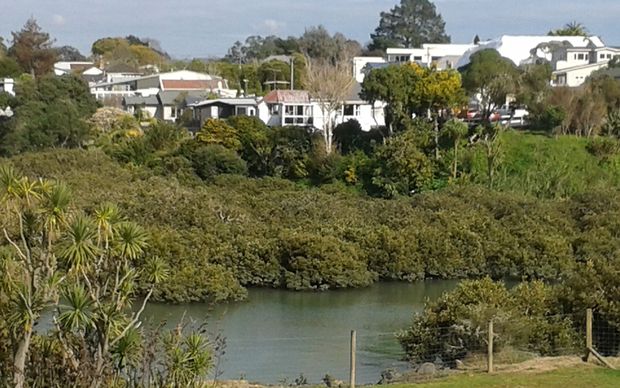Half of Auckland’s fresh waterways are too polluted to use and future generations will face a multi-billion dollar bill to clean up, according to environmental managers.
The Government’s new rules for streams, rivers and lakes came into force at the beginning of August, and regional councils must commit to a plan to reducing pollution in any problematic waterways by 2025.

Water in Meola Creek in the heart of Auckland is not safe for drinking or swimming. Photo: RNZ / Olivia Allison
Auckland has 16,500km of freshwater streams. The council monitors 36 rural, urban and sites near the ranges monthly.
The council’s manager of strategy and research Grant Barnes said no sites will consistently fail, but about half will fall below standards in the course of each year.
“Some streams in urban Auckland will fail periodically the level of E-coli and then some streams in rural Auckland are likely to fail on occasion the national bottom line for nitrate.”
The council says the cost of bringing the waterways up to scratch will have to be spread over generations.
Urban waterways are the big problem for Auckland because of sewerage problems, run-off from roads and roofs, and less water.
Fixing the waterways involves altering the amount of water flowing and its speed, adding more wetlands and having better drainage around urban areas, but that comes at a hefty price. A project starting in 2017 to divert some of the dirty stormwater is going to cost $1 billion.
With plenty more waterways to clean, the work is going to be spread over generations to make it more affordable.
Auckland seems isolated when it comes to this problem, with Wellington and Canterbury each having only a few waterways that will fail to meet the benchmarks.
